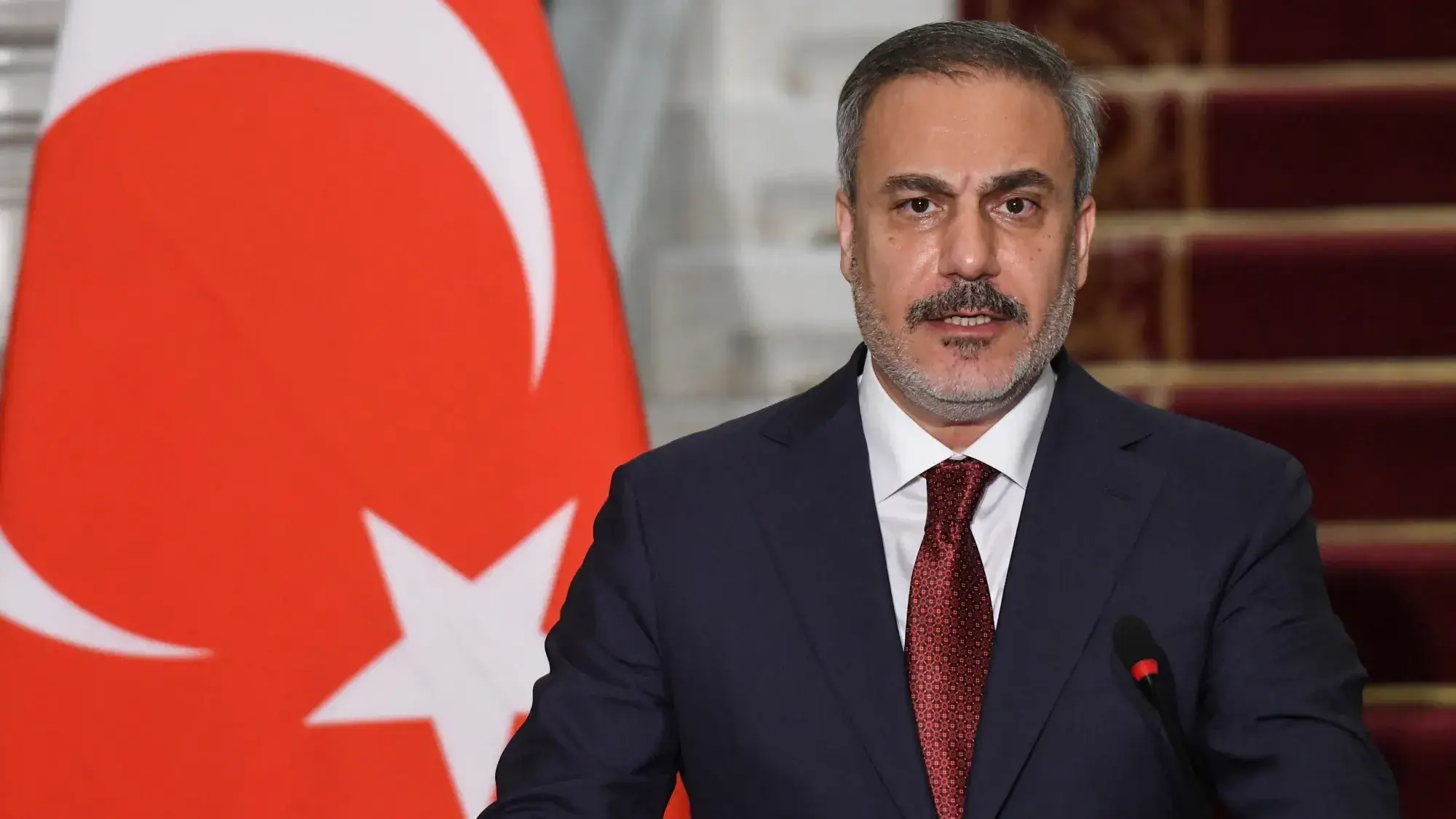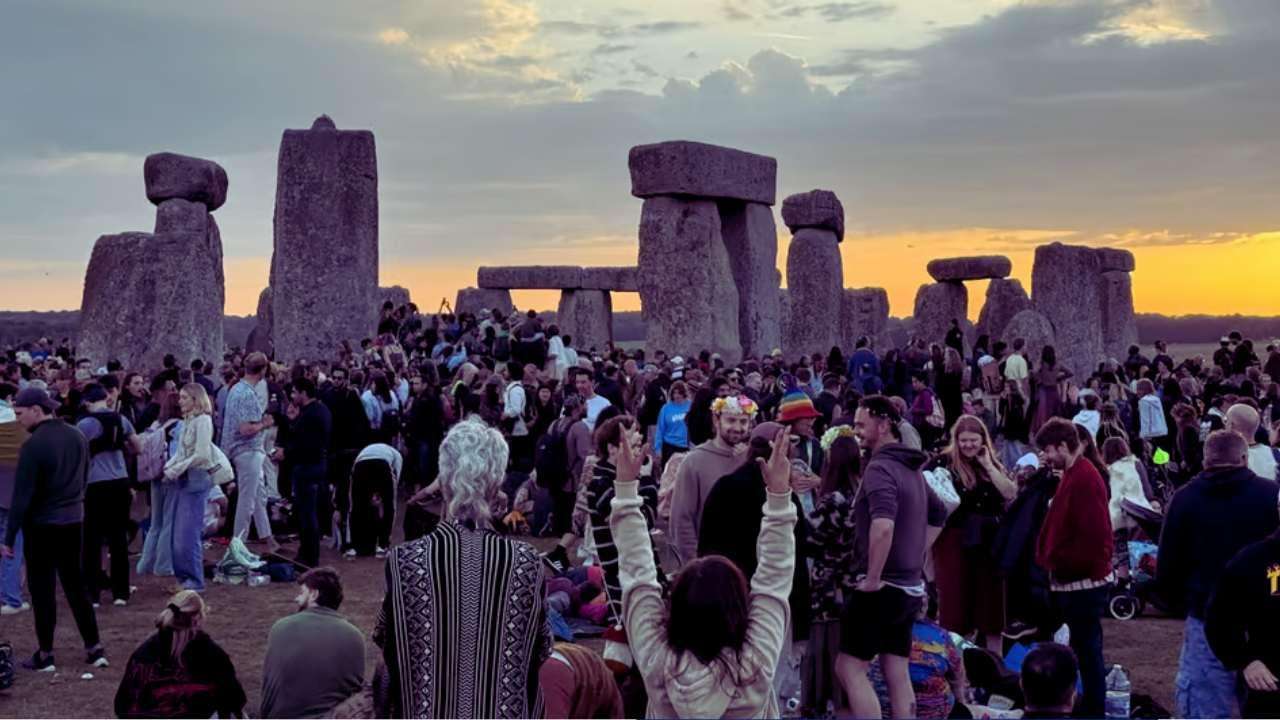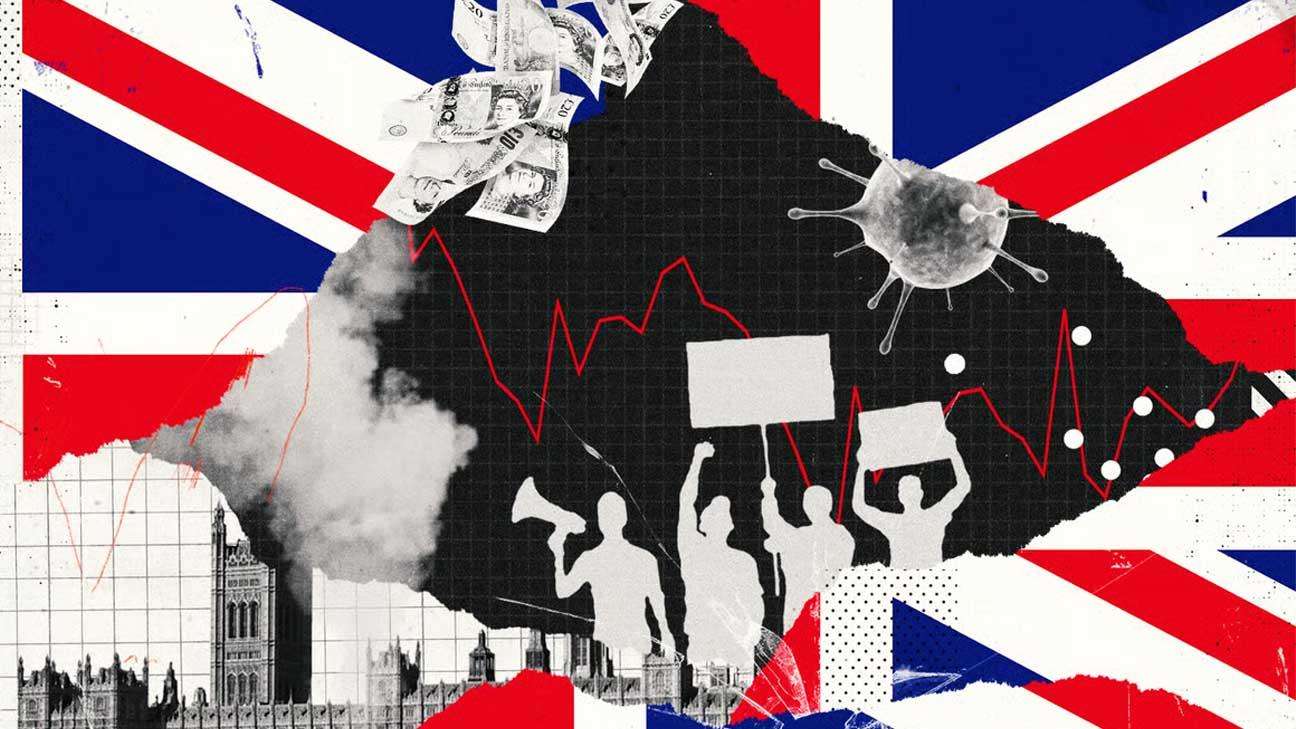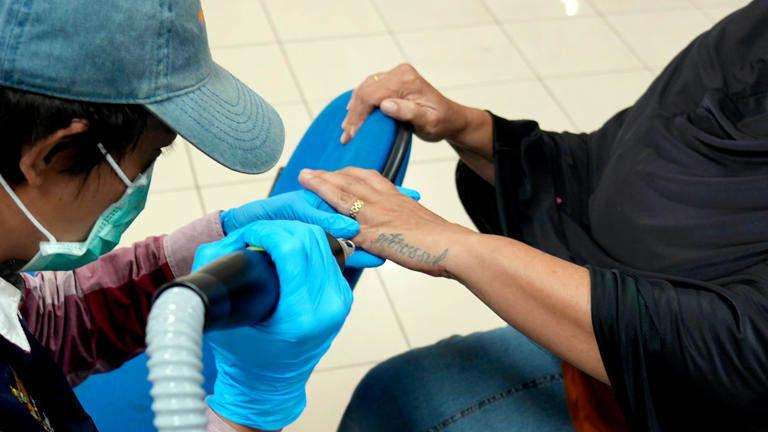Teguh Islean Septura winces in pain as the laser emits rapid bursts of intense light, targeting the intricate tattoos on his arm. However, his resolve to "repent" during the sacred month of Ramadan keeps him enduring the discomfort.
The 30-year-old former guitarist once covered his back, arms, and legs in tattoos to “look cool” while performing in a band. But now, he has embraced a deeper commitment to Islam, believing that Muslims should preserve the natural body given to them by God.
“As humans, we sometimes make mistakes. Now, I want to better myself by strengthening my connection with God,” Septura said as a health worker directed a white laser wand at his skin, breaking down the red, green, and black pigments. “God gave me unmarked skin, and I damaged it—that’s what I now regret.”
Septura is one of many people in Indonesia’s capital seeking free tattoo removal services provided by the Amil Zakat National Agency, an Islamic charity, during Ramadan. The initiative aims to offer practicing Muslims an opportunity to "repent."
First launched in 2019, the program has become an annual Ramadan event, a time dedicated to fasting, worship, self-reflection, and good deeds. This year, approximately 700 people have registered for the service, bringing the total number of participants to nearly 3,000.
“We want to support those who wish to undergo hijrah (a spiritual transformation to grow closer to God), including individuals who want to remove their tattoos,” explained Mohammad Asep Wahyudi, one of the event coordinators. He noted that many people lack the financial means for tattoo removal or do not know where to access safe procedures.
Laser tattoo removal requires multiple sessions, may not guarantee complete erasure, and can cost thousands of dollars—especially for large tattoos like Septura’s.
In some Asian cultures, tattoos are still strongly linked to gangs and criminal activity. In Muslim-majority Indonesia, religious beliefs further discourage body modifications. Additionally, societal attitudes toward tattoos often reinforce gender-based stigma, with women who have tattoos sometimes being unfairly labeled as promiscuous or unsuitable for marriage.
Sri Indrayati, 52, got a tattoo of her first daughter's name on her hand at 22, shortly after giving birth. However, she now regrets it, especially since her two grandchildren frequently ask her to remove it, comparing it to thick, messy marker scribbles.
“When I take my grandson to school, the children whisper to each other: ‘Look at that grandma, she has a tattoo!’” she shared.
Another woman, Evalia Zadora, got a large star tattooed on her back and the phrase "Hope, Love, and Rock & Roll" inked on her upper chest as a teenager to fit into a gang. Now, she wishes to remove them to strengthen her faith and out of respect for her family.
“The stigma around tattoos doesn’t bother me personally, but it affects my husband and son,” said Zadora, 36. “They feel uncomfortable with my tattoos, and I respect their feelings, so I want them removed.”
_1.jpg)

_1.jpg)





.svg)


